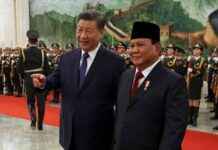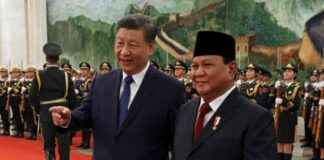Xi Jinping, the president of China, is taking a stand against the rise of protectionism in the global economy, warning world leaders about the challenges that come with dividing an interdependent world. He emphasized the importance of maintaining a rules-based system over a power-based one, aiming to improve ties with countries facing tough negotiations with the US over tariffs.
China has been on the receiving end of punitive tariffs imposed by the Trump administration, and now faces the threat of additional tariffs under the upcoming presidency. Xi’s proactive approach to engage with leaders of various nations, including Thailand, Singapore, Chile, South Korea, Japan, and New Zealand, highlights his commitment to upholding the international trading system.
During the Apec CEO Summit, discussions revolved around the impact of protectionism and unilateralism on global supply chains. Industry leaders and former Chinese officials stressed the importance of standing up against these practices, advocating for a united front to address issues that are detrimental to everyone involved.
The ongoing trade tensions between the US and China have left many countries navigating uncertain waters, with leaders like Prime Minister Justin Trudeau emphasizing the need for political leaders to prioritize trade agreements that benefit average citizens. The complexities of trade negotiations have only intensified as protectionist policies continue to disrupt global economic stability.
As Xi Jinping asserts China’s commitment to free trade and international cooperation, the world watches closely to see how global leaders will navigate the evolving landscape of trade relations. Despite the challenges posed by protectionism, there is hope that collaborative efforts and a rules-based approach will lead to sustainable solutions that benefit all nations involved.




















